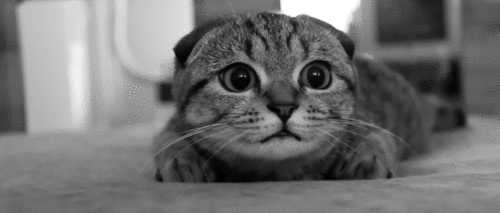Articles
- Sunrise reels slot | The best free revolves incentives in the uk to own 2024
- What type of licenses do Trend casino has?
- totally free revolves no deposit bonus – perfect for the newest players
- Take advantage of the 29 100 percent free Revolves and no Put Needed at the Wink Harbors
- BitStarz Ports Where you can Clinch a lot of money within the Benefits
Only a few online game contribute just as so you can a plus wagering needs; you could choose them regarding the incentive T&Cs. To make the best of the 30 free spins, you should wager on video game you to definitely contribute as much as a hundred% – harbors and you may scratchcards are the most widely used one hundred%-adding video game. At the end of your day, there are a few gambling enterprises on the market that you need to prevent, which includes the bonuses. An educated position to make use of your own 29 free revolves added bonus to your try as a result of your.
Gambling enterprises always limitation simply how much a player can also be earn from them, however. Because of the British betting laws and regulations, certain casinos will get call them “bonus” otherwise “a lot more revolves”. Fire Joker possesses several bonus have, and respins plus the Controls away from Multipliers which have limit victories of 800x their risk. If you wish to enjoy Flames Joker that have free revolves following where to claim her or him is MagicRed. In our sense, these types of ports are the most incorporated the newest inside free spins offers at the British casinos. Those people looking to allege incentive revolves have numerous ways to allege him or her.
Sunrise reels slot | The best free revolves incentives in the uk to own 2024
If you learn you to definitely an excellent 31-extra deal could just be what sunrise reels slot you’re trying to find, consider the number of finest now offers. Within set of extra selling, you’ll get the finest 29 totally free spins incentives your net is offering. With this particular collection of information to your 31 free revolves bonuses to your your front, you’ve got a standard look at what to anticipate away from these types of product sales. Out of bonus brands so you can pesky conditions and terms, you’ll have the ability to tell a good provide out of a lousy one. Certain slap highest wagering requirements in your bonus profits although some remove the idea completely. Continue reading less than, as we give you a simple view exactly what such various other added bonus brands involve.
This means one to participants should see specific requirements prior to being able to withdraw people payouts. You’re able to twist a popular harbors and have a chance in order to victory a real income. No deposit totally free spins is actually Canadian internet casino web sites’ most widely used bonus advertisements. Once you see a no deposit added bonus, it means you have made the advantage rather than and then make a deposit.
What type of licenses do Trend casino has?

One which just allege those bonuses, although not, simple fact is that no-deposit incentive that you’ll want so you can bring basic. You can claim which bonus if you’re inside regions including while the Canada, Ireland, Australian continent, India, Southern Africa, and you can The new Zealand. All the online game inside Wave’s lobby—mainly ports—are for sale to fun. You could purchase the trial and enjoy any video game to have because the enough time as you want on your pc and you can portable. Running on the biggest company for example Progression Gambling, it households dozens of game that you’ll have fun with. Very, such, for those who love a game title from blackjack against a bona fide dealer, it’s better to routine for the RNG video game earliest.
- You can access the brand new gambling establishment and you may play the game to your any Android/apple’s ios products.
- You can pick up your revolves anytime ranging from Saturday and Thursday, therefore it is a great means to fix support the excitement heading few days once few days.
- BetUS is an additional finest on-line casino recognized for its tempting zero deposit 100 percent free spins now offers.
- This guide usually introduce you to the best 100 percent free spins zero deposit also offers to have 2024 and ways to make use of him or her.
- During the KingCasinoBonus.com, we firmly trust betting will be merely concern grownups.
totally free revolves no deposit bonus – perfect for the newest players
There isn’t any maximum conversion caused by the advantage cash and you may Pussy Do share 450% more than five deposits, therefore it is clear the requirements commonly easy. There is, although not, an optimum conversion of €one hundred / AU$/C$/NZ$150 attached to the 100 percent free revolves you get within that it added bonus. Particular web based casinos like nothing more than giving out 100 percent free revolves to the Book out of Dead slot. Askbonus.com commercially announces that every piece of information available on the site is for entertainment motives merely.
Take advantage of the 29 100 percent free Revolves and no Put Needed at the Wink Harbors
Therefore, trying to find video game that have an RTP a lot more than 97% will increase your odds of effective awards and you can gaining certain benefits as you enjoy through your fund. Constantly, the brand new Casino Subscribe Extra is a huge chance for the newest participants. Specific 100 percent free spins now offers could be limited by certain online game, and when those people aren’t the new game you like to gamble chances are they obtained’t be of any used to you. You could discover that some totally free revolves are just available to possess a specific time frame, so be sure to utilize them just before they expire. There is certainly one trick difference between no deposit free spins and you may totally free revolves sales that are offered as part of in initial deposit added bonus. The former will not need you to make any dumps on the your gambling enterprise account to help you lead to the bonus, because the latter usually.
Allege so it exclusive promotion and attempt the newest wild-loaded excitement by redeeming one hundred spins abreast of their very first deposit of CA$forty-five. Whatever you’ll have to do so you can allege it totally free welcome incentive are sign in playing with all of our private connect, fill in your details, and you will make certain their cell phone number. What you need to manage is enter into promo password OWL20 immediately after causing your the newest membership playing with our private connect. And, one of the fun bonuses to suit your four deposits away from €/$20 for each also provides a hundred Free Revolves around €/$three hundred. This is the way higher you might bet regarding wagering your own incentive money.

Specific casinos is function betting criteria which get of up to 200x, to create it harder for you to earn any real money from the new 100 percent free spins. Reviews and pro analysis from web based casinos taking participants from the claims. Discover the newest bonus requirements and you will tricks for internet casino gambling in the us.
BitStarz Ports Where you can Clinch a lot of money within the Benefits
Be aware that these incentives, as well as deposit suits extra, feature specific terms and conditions, including minimal put criteria and you may betting criteria. Typically, the minimum deposit to own a welcome incentive range out of $5 so you can $20, since the matches percentage may differ of a hundred% in order to two hundred%. Information this info enables you to discover best suited greeting added bonus for your needs, to avoid unwanted surprises.
A no-deposit added bonus is an excellent tool to help you rating a preferences of an online casino before investing real money. When it comes to the fresh gambling enterprises such as Digits 7 in addition to this, enabling you to ensure if it will pay away profits, an such like. Matt are a good co-creator of one’s Casino Wizard and an extended-go out on-line casino enthusiast. He is been a casino poker fan most of his lifestyle and you will already been his iGaming occupation since the an old on the web added bonus hunter to possess web based poker online game. Matt’s experience in the field of casinos on the internet, in combination with his background in the online marketing provides assisted The fresh Gambling establishment Wizard getting the goals now.
The newest free spins during the Crazy Casino include particular qualification for particular video game and you may involve betting requirements you to definitely professionals have to meet so you can withdraw the profits. This is going to make Wild Casino an appealing choice for participants seeking delight in a variety of online game on the additional advantage of bet totally free revolves no put totally free revolves. Typically, totally free revolves no-deposit incentives have been in certain quantity, often offering some other spin thinking and you can amounts. Things such as the level of revolves, the worth of per twist, and also the limitation successful amount can vary rather from one offer to a different. So it diversity means indeed there’s some thing for everyone, if you need a huge number of down-really worth spins otherwise a number of higher-value of those. Of several web based casinos provide support or VIP apps one to reward present professionals with original no deposit incentives or other bonuses for example cashback benefits.
